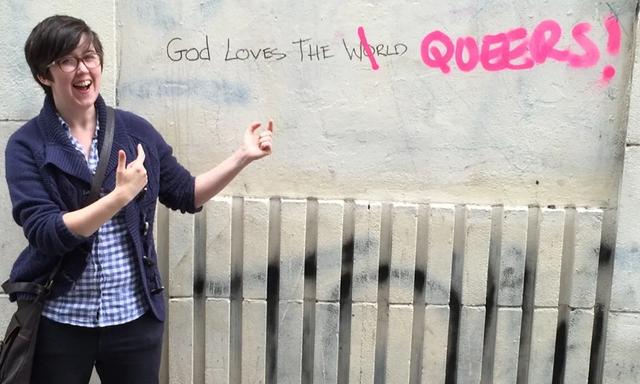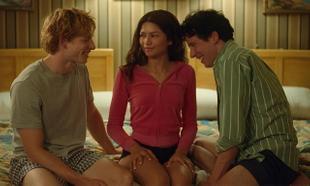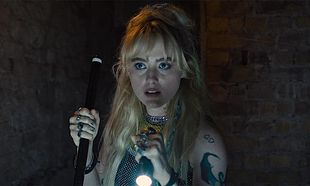With access to family footage, news archives, and interviews with those who knew her and were closest to her, 'Lyra' tells the story of Northern Ireland investigative journalist Lyra McKee, from her childhood in Ardoyne, to discovering journalism at a young age, being a gay woman in Northern Ireland, and her violent death the age of 29.
The opening moments of 'Lyra' say as much about Lyra McKee as they do the documentary you're about to watch. A young woman in a fit of giggles, trying to arrange herself on camera to give a serious talk about her city and her experience. She's chuckling away to herself, full of life and slight embarrassment, when the director asks her to think about what's she doing as a way of centring herself. It works, and her face becomes serious and measured. It then moves into a procedural retelling of her murder, with footage captured from the night itself, right up to the moment it occurred and shortly thereafter.
'Lyra' is unambiguous in its approach, precisely as any journalist should want it to be. It doesn't equivocate, it doesn't work in half-measures, and it tells the truth of Lyra McKee's brief life with as many facts as relevant to the story. She was born in Belfast, not far from the so-called Murder Mile, among the generation to grow up in the aftermath of the Good Friday Agreement, showed a remarkable propensity for investigative journalism at a young age, and got to work. Yet, between these facts, the shades and the light shows us who she really was. There are heartbreaking interviews with her sister and her fiancée, the candid footage showcasing how bright and funny she was, and her bravery, as a gay woman in a place which wasn't particularly welcoming of the idea, shines through.
Director Alison Millar weaves together the woman she clearly knew well with the recorded facts of her life. There's a moment, later on, when Millar confronts protestors at the trial of one of the people involved in Lyra's murder, where she states that Lyra was like a daughter to her. It's a heartrending moment, because you grasp that Millar's intent is to carry on her work however she can, and not let her become some pawn to throw around like so many victims in Northern Ireland. This is echoed in her sister's words, that she had to stay here to ensure Lyra's work and life is not forgotten.
Throughout 'Lyra', we see the murals that we associate with Northern Ireland, emblazoned with images of Bobby Sands, emblems of paramilitaries from both sides of the conflict, and so on. In the end, we see a mural of Lyra McKee, urging people to hope that it will get better.











































































